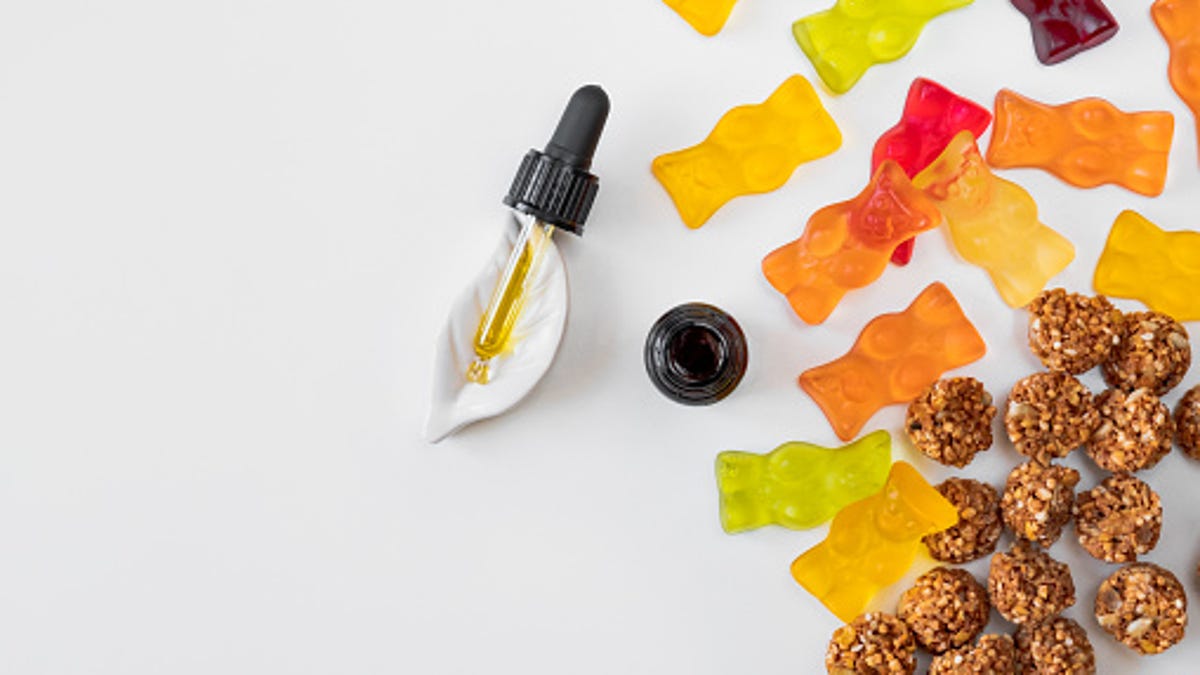 Why You Can Trust CNET
Why You Can Trust CNET Need Help Snoozing? Try CBD as a Natural Sleep Aid
If you can't seem to get to sleep at night, CBD might be able to help.

Cannabidiol, or CBD has rapidly gained popularity for several ailments -- including insomnia. While CBD isn't a cure-all solution like it's sometimes referred to, it does have several benefits that can't be ignored. Research has found evidence that CBD can help ease pain and relieve anxiety symptoms.
If you've been struggling with sleeping at night and are looking for a natural sleep aid, consider adding CBD to your nightly routine. But before you do, let's go through what you need to know to start.
Also, find out how to recognize if you're not getting restful sleep and how to nap like a champ.
Can CBD help you sleep?
The research on CBD's effectiveness in treating ailments is still developing. This means that the research supporting CBD for anxiety or sleep is limited. However, early studies suggest high CBD doses can help someone sleep better. Outside of what's been researched, many people say CBD can help ease anxiety symptoms, relieve muscle pain and treat insomnia.
So far, there is only one CBD product that is FDA-approved in the US. Epidiolex is an oral CBD solution used to treat seizures. However, the CBD market is constantly expanding with supplement options.
Steps to use CBD as a natural sleep aid
1. Identify your sleep issues
Before taking anything for sleep disturbances, you must figure out the source of your sleep issues. Sources of sleep issues can include stress, chronic pain or medical conditions. Without understanding what factors are at play, you may not truly address the core that keeps you awake. Speaking to your doctor if you have serious sleeping problems before taking CBD is always a good first step..
2. Choose your CBD form
If you decide that you'd like to try CBD for sleep, it's important to determine what type of CBD product you'd like to use. With the growing popularity, new forms of CBD keep surfacing. No longer are there only capsules and liquids. Now you can get CBD candy, cookies and drinks.
A lot of this is preference. However, your chosen form will also influence how quickly you feel the effects. For instance, oils taken under the tongue enter the bloodstream faster. In contrast, drinks have to pass through the digestive system and will take longer to take effect. This doesn't mean that CBD teas or gummies are not suitable for helping you sleep; it just means you may want to take them at the start of your nightly routine.
3. Check the label and dosage
It's always important to check the concentration and dosage of your CBD product. It's most often expressed in milligrams on the label. Since the FDA does not closely regulate the market, there are no guidelines for how much CBD you should take. Your ideal dosage depends on your weight, what you're treating and the product concentration.
Unfortunately, up to 70% of CBD products bought online have a concentration that varies from what is listed on the label. It can be difficult to determine how much you should take. While there are no reports of CBD overdosing, side effects can include fatigue, diarrhea and appetite changes. Clinical studies have found that people can tolerate amounts of CBD as much as 1,500 milligrams daily.
4. Add CBD to your nightly routine
Once you know what type of CBD product you prefer and how much you should take, it's time to integrate the CBD product into your nightly routine. Your bedtime routine is the most important thing you do to support your sleep. It will determine how long you sleep and the quality thereof.
The key to a nightly routine is making it a habit you follow. Think of it as a checklist. Maybe you drink your CBD tea, take a bubble bath and climb into bed. Or maybe you practice yoga for sleep and then drop a few CBD oil drops under your tongue. Whatever your routine, it's important to stick to it. Our bodies love routines; by doing it each night, your body will start relaxing and getting ready for sleep.
For more on sleep, learn how to train yourself to sleep early, how to fall asleep in 10 minutes or less and why your paycheck will be higher if you get good sleep.

